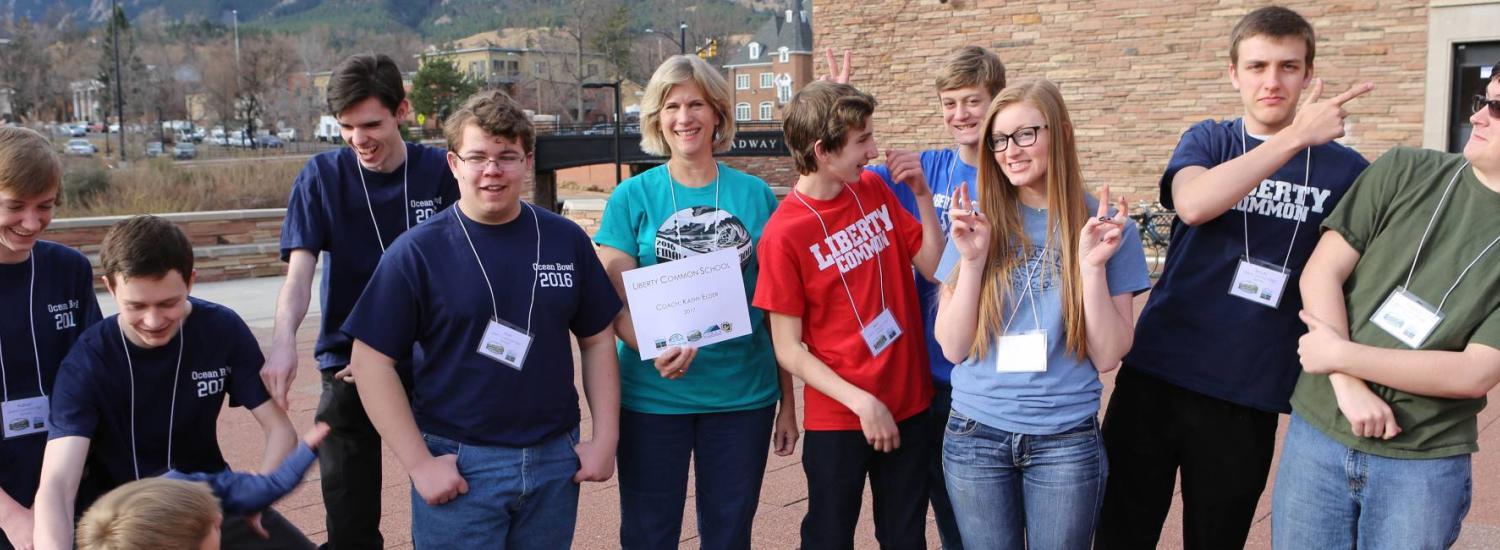Ocean Science Competition for High Schoolers Thrives in Landlocked State
Regional Trout Bowl and National Ocean Sciences Bowl competitions help bright, young students develop a future in ocean science

Late Winter in Colorado brings dozens of Trout Bowl contestants to Boulder—high school students from across the Front Range and beyond who compete in an ocean science-themed, jeopardy-style competition. But instead of presenting questions about world history and pop culture, judges ask questions like: “Explain the difference between the compensation depth and the oxygen minimum in the ocean.”
The Trout Bowl—which takes place at the University of Colorado Boulder February 3 this year—is one of 25 regional divisions of the National Ocean Sciences Bowl competition, and the only one to take place in a totally landlocked state. For 18 consecutive years it has encouraged the next generation of young, scientific minds to feed their curiosity about Earth's oceans.
“You don’t have to live near the ocean to do awesome, ocean-related science.” said Amanda Morton, Trout Bowl regional coordinator and assistant to the director of CIRES Education & Outreach program. “We are so excited to showcase the amazing research CIRES does, and open new opportunities for students who may be interested in attending CU Boulder.”
Students work hard to answer trivia questions. Photo: CIRES Education & Outreach
And there's something new this year: The winning team of the Trout Bowl, and winners from the other 24 regions, will move on to compete in the national NOSB competition—an event that will also take place here in Boulder. It’s the first time NOSB will hold nationals in a state whose nearest coastline is over 1,000 miles away.
The theme of this year’s competition is: “Our Ocean Shaping Weather.” NOSB organizers were at first hesitant to hold an ocean-themed competition in Colorado, until Morton explained some of the critical weather-related work that CIRES and NOAA scientists conduct—from remote sensing of oceans with satellites, drones, and aircraft, to hands-on work in the field. It worked: On April 19-22, 115 students from 39 states across the country will gather at the University Memorial Center to fight for the national title.
Student teams take the competition seriously, squeezing in practice hours to study topics like ocean science, geology, science policy, atmospheric science, and more. One team from Loveland High School even met diligently during their school lunch break every day for an entire semester.
“It took a lot of time to prepare, both practicing in school and studying the material at home,” said Dalton Meyer, a former Loveland High School Trout Bowl competitor, and recent graduate of Colorado State University with a double major in geology and zoology. “We had to do a lot of learning on our own to supplement things that weren't covered in our classes. Being in a landlocked state, a lot of the finer points of oceanography weren't taught at our school.”
On competition day, students enter the room quiet, nervous and focused—eyeing the trophy table as they make their way through the bustling crowd of other teams, volunteer staff, parents and spectators. But as the day heats up, students find their groove. By the end of the day, they are chatting with volunteer scientists, asking questions and soaking up information like little sponges, said Morton.
Photo: CIRES Education & Outreach
The champion team from the NOSB competition will win a science-themed trip to an exciting coastal city. This year’s winning trip will be announced the weekend of the finals competition.
Past winners have traveled to locations like: Alaska, Hawaii, Puerto Rico, Monico, and more. Between sight-seeing and experiencing nature, students shadow scientists, visit labs, ride in research boats, and peruse museums—one group even tagged sharks in the Gulf of Mexico. “Don’t worry, only little sharks,” added Morton.
“Exposing high schoolers to the various disciplines of ocean sciences can open their eyes to an area of study that they might not typically think of here in Colorado.” said Lesley Smith, associate director of CIRES’ Education & Outreach program, and NOSB science judge since 1999. “There are lots of fields of study in ocean sciences, and I know some of our alumni are pursuing degrees in ocean-related sciences.”
Volunteers are critical to NOSB’s operation and success. Each competition recruits hundreds of volunteers to write questions, judge and moderate.
Interested in volunteering for the Trout Bowl or national NOSB competition this year? Openings for both scientists and nonscientists are available. Contact Amanda Morton at amanda.morton@colorado.edu. Deadline to sign up for the Trout Bowl is January 19, 2018.